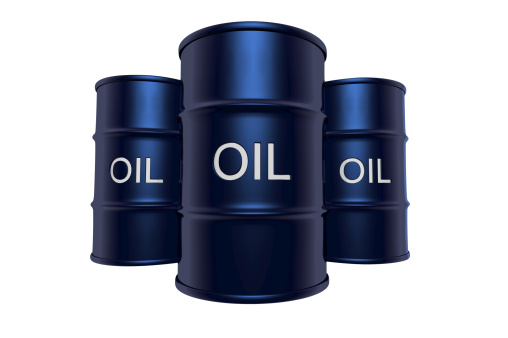
Tuesday evening, the American Petroleum Institute (API) reported that crude inventories rose by 4.6 million barrels in the week ending September 25th. For the same period, analysts had estimated an increase of 300,000 barrels in crude inventories.
Total gasoline inventories increased by 3.3 million barrels last week, according to the EIA, and are now near the upper limit of the five-year average range. Total motor gasoline supplied (the agency’s measure of consumption) averaged about 9.1 million barrels a day for the past four weeks, up by 4.2% compared with the same period a year ago.
U.S. refineries continue to process fewer barrels as turnaround to winter-grade fuel and scheduled maintenance proceeds.
In the futures market last week, hedge funds are continuing to unwind their short positions. In the Commitment of Traders report for September 22nd, published by the Commodity Futures Trading Commission (CFTC) last Friday, hedge funds dumped 10,168 short contracts and added 9,386 contracts to their long positions. Managed money holds 269,393 long positions compared with 105,552 short positions. Open interest decreased by about 96,732 contracts to 1,606,217 week-over-week.
ALSO READ: Nomura Sees More M&A in the Oil Patch
Before the EIA report, benchmark West Texas Intermediate (WTI) crude for November delivery traded up about 0.5% at around $45.48 a barrel. The WTI price fell to around $44.84 immediately following the report’s release, down about 1% on the day. The 52-week range on WTI futures is $38.51 to $87.14.
Distillate inventories decreased by 300,000 barrels last week and remain in the middle of the average range for this time of year. Distillate product supplied averaged 3.8 million barrels a day over the past four weeks, up by 0.2% when compared with the same period last year. Distillate production averaged 5 million barrels a day last week, down about 100,000 barrels a day compared with the prior week’s production.
For the past week, crude imports averaged 7.6 million barrels a day, up by 378,000 barrels a day compared with the previous week. Refineries were running at 89.8% of capacity, with daily input of 16 million barrels, about 240,000 barrels a day below the previous week’s average.
According to AAA, the current national average pump price per gallon of regular gasoline is $2.285, up slightly from $2.283 a week ago and down from $2.479 a month ago. Last year at this time, a gallon of regular cost $3.333 on average in the United States.
ALSO READ: Stifel Says Not to Wait for Oil to Bottom: 4 Stocks to Buy Right Now
Here is a look at how share prices for two blue-chip stocks and two exchange traded funds reacted to this latest report.
Exxon Mobil Corp. (NYSE: XOM) traded up about 1%, at $73.79 in a 52-week range of $66.55 to $97.20. Year to date, Exxon stock traded down about 20% and is down about 24.6% since early November, as of Tuesday’s close.
Chevron Corp. (NYSE: CVX) traded down about 0.1%, at $77.18 in a 52-week range of $69.58 to $123.07. As of Tuesday’s close, Chevron shares have dropped about 30% year to date and trade down nearly 36.4% since early November.
The United States Oil ETF (NYSEMKT: USO) traded up about 12.1%, at $14.77 in a 52-week range of $12.37 to $34.98.
The Market Vectors Oil Services ETF (NYSEMKT: OIH) traded up about 1.5% to $27.74, in a 52-week range of $26.00 to $50.59.
100 Million Americans Are Missing This Crucial Retirement Tool
The thought of burdening your family with a financial disaster is most Americans’ nightmare. However, recent studies show that over 100 million Americans still don’t have proper life insurance in the event they pass away.
Life insurance can bring peace of mind – ensuring your loved ones are safeguarded against unforeseen expenses and debts. With premiums often lower than expected and a variety of plans tailored to different life stages and health conditions, securing a policy is more accessible than ever.
A quick, no-obligation quote can provide valuable insight into what’s available and what might best suit your family’s needs. Life insurance is a simple step you can take today to help secure peace of mind for your loved ones tomorrow.
Click here to learn how to get a quote in just a few minutes.
Thank you for reading! Have some feedback for us?
Contact the 24/7 Wall St. editorial team.




